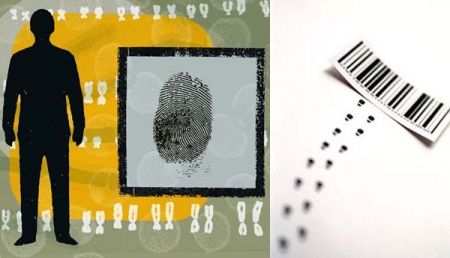Identity Theft - Overview
Identity TheftWhen someone wrongfully obtains and uses another person's personal data in some way that involves fraud or deception, typically for economic gain then this crime is termed as Identity theft and/or identity fraud. Identity theft is whereby an individual obtains some piece of an unsuspecting victim’s sensitive information and uses it without their knowledge to commit fraud or theft. According to the Federal Trade Commission (FTC), “people whose identities have been stolen can spend months or years and their hard earned money trying to clean up the mess the thieves have made of their good name and credit record. Some victims have lost job opportunities, been refused loans for education, housing, cars or even arrested for crimes they didn’t commit.”
Unlike your fingerprints, which are unique to you and cannot be given to someone else for their use, your personal data ¬ especially your Social Security number, your bank account or credit card number, your telephone calling card number, and other valuable identifying data ¬ can be used, if they fall into the wrong hands, to personally profit at your expense. In the United States and Canada, for example, many people have reported that unauthorized persons have taken funds out of their bank or financial accounts, or, in the worst cases, taken over their identities altogether, running up vast debts and committing crimes while using the victim’s names. In many cases, a victim's losses may include not only out-of-pocket financial losses, but substantial additional financial costs associated with trying to restore his reputation in the community and correcting erroneous information for which the criminal is responsible. According to the FBI statistics, Identity Theft is the fastest growing crime in the U.S.’s. Identity theft thieves have perfected the art of collecting information of unsuspecting victims and now all the law enforcement agencies, as well as affected companies, are working hard to find ways to combat these issues. In one notorious case of identity theft, the criminal, a convicted felon, not only incurred more than hundred thousand dollars of credit card debt, obtained a federal home loan, and bought homes, motorcycles, and handguns in the victim's name, but called his victim to taunt him - saying that he could continue to pose as the victim for as long as he wanted because identity theft was not a federal crime at that time - before filing for bankruptcy, also in the victim's name. While the victim and his wife spent more than four years and more than fifteen thousand dollars of their own money to restore their credit and reputation, the criminal served a brief sentence for making a false statement to procure a firearm, but made no restitution to his victim for any of the harm he had caused. This case, and others like it, prompted Congress of US in 1998 to create a new federal offense of identity theft (first major step in this regard). |
Home Already an Identity Theft Victim Find out if you are a victim of Identity Theft Identity Theft Identity Theft Insurance Identity Theft Protection Internet Identity Theft Known Stats and Figures Latest Identity Fraud Scams Using Fraud Alerts Who Can Help Links |
© 2006 www.IdentityTheftExpertSecrets.info All Rights Reserved.

